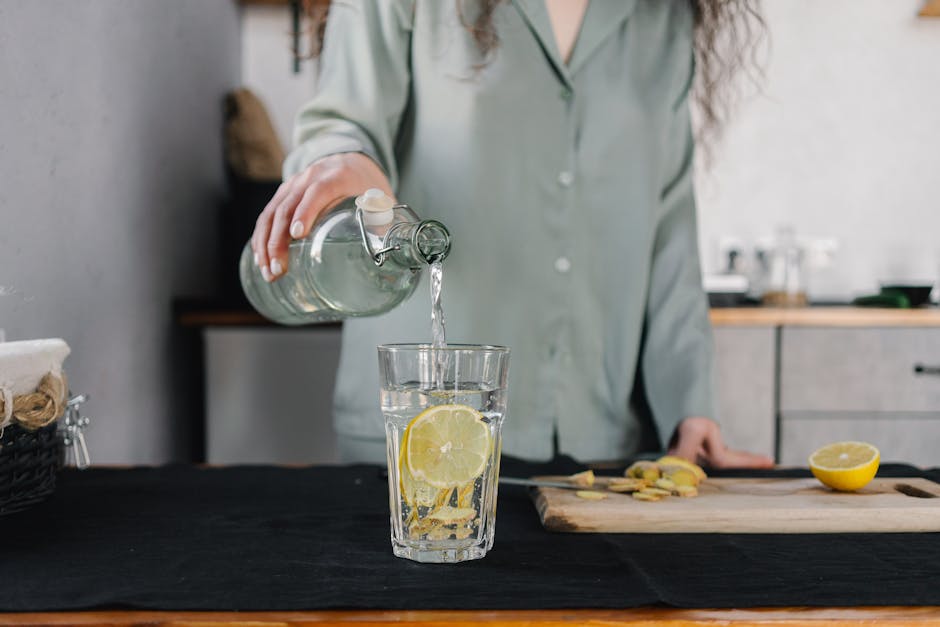How Stress Affects Your Skin: Tips
Did you know that stress can show up on your skin? it’s true! Many people notice changes in their skin when they’re feeling anxious or overwhelmed. From breakouts to dryness, stress can create a range of skin problems. So, how exactly does stress impact our skin? Lets dive in!
What Happens to Your Skin When You’re Stressed?

When you’re stressed, your body releases hormones like cortisol. This hormone can increase oil production in your skin. More oil can lead to clogged pores, which may cause acne. Stress can also lead to inflammation, making conditions like eczema or psoriasis worse.
Interestingly, a study published in the *Journal of Investigative Dermatology* found that stress can trigger skin flare-ups. This means that when you feel anxious, your skin is likely to react. it’s a common cycle that many of us experience.
How Does Stress Cause Breakouts?

You might be wondering, Why do I get more breakouts when I’m stressed? Heres the deal. Stress makes your body release more oil. It also impacts your immune system. This means your body may have a harder time fighting off bacteria that cause acne.
Think about it: Have you ever had a big presentation or exam, only to wake up with a pimple the next day? it’s frustrating, but it happens to many people. Managing stress can help keep your skin clear.
Can Stress Make Existing Skin Conditions Worse?

Yes, it can! If you already have skin conditions like acne, eczema, or psoriasis, stress can lead to flare-ups. In fact, a survey by the American Academy of Dermatology found that 70% of people with skin conditions say stress makes their symptoms worse.
When you’re stressed, your bodys inflammatory response kicks in. This means your skin can become red, itchy, or irritated. If you struggle with these conditions, finding ways to manage stress is essential.
Why Does Stress Cause Dry Skin?

Stress can also lead to dry skin. When you’re stressed, you may not drink enough water or take care of yourself. This can lead to dehydration, which shows up as dryness and flakiness on your skin.
Additionally, stress can disrupt your sleep. Lack of sleep can reduce your skins ability to repair itself. This might leave your skin looking tired and dull. Taking care of your mental health can have positive effects on your skin.
What Are Some Common Misconceptions About Stress and Skin?
Many people think that stress only affects their mind. However, it has real effects on the body, especially the skin. Here are some common misconceptions:
- Only teenagers get acne. Stress can cause breakouts at any age.
- Skin products can fix everything. While good products help, they can’t replace stress management.
- Stress doesnt affect healthy skin. Even healthy skin can react to stress.
How Can You Manage Stress for Better Skin?
Now that we know how stress affects the skin, lets discuss some simple ways to manage it. Here are effective tips:
- Practice mindfulness: Spend a few minutes each day focusing on your breath. Mindfulness can help calm your mind.
- Stay active: Exercise releases endorphins, which boost your mood. Even a short walk can make a difference!
- Get enough sleep: Aim for 7-9 hours of sleep each night. Good sleep can help your skin recover.
- Stay hydrated: Drink plenty of water. Keeping your body hydrated can improve your skins appearance.
- Use skincare wisely: Gentle products can soothe stressed skin. Look for products with calming ingredients like aloe or chamomile.
What Should You Avoid to Protect Your Skin?
Just as there are things you can do to help your skin, there are also things to avoid. Here are some common pitfalls:
- Skipping meals: Low energy can increase stress. Eating balanced meals can help keep you feeling good.
- Overusing harsh products: Strong acne treatments can irritate your skin more. Stick to gentle options.
- Neglecting self-care: Make time for yourself. Whether it’s reading, meditating, or taking a bath, self-care is important.
- Ignoring professional help: If stress becomes overwhelming, consider talking to a therapist. They can provide support and strategies.
Can Diet Influence Stress and Skin Health?
Absolutely! What you eat affects both your stress levels and your skin. Here are some dietary tips:
- Eat whole foods: Focus on fruits, vegetables, and whole grains. These foods provide essential nutrients.
- Limit sugar: High sugar intake can lead to inflammation and worsen skin issues.
- Include healthy fats: Foods like avocados and nuts are good for your skin and can help your mood.
- Consider probiotics: Foods like yogurt can support gut health, which is linked to skin health.
How Can Professional Treatments Help?
If at-home remedies aren’t enough, consider seeing a dermatologist. They can offer treatments tailored to your skins needs. Options may include:
- Topical treatments: Creams and gels can target specific skin concerns.
- Facials: Professional facials can help cleanse and soothe stressed skin.
- Light therapy: This treatment can reduce inflammation and acne.
What Final Tips Can Help Keep Your Skin Healthy?
To wrap it all up, here are some quick reminders to keep your skin looking it’s best:
- Practice stress management techniques regularly.
- Stay hydrated and eat a balanced diet.
- Use gentle skincare products.
- Get regular exercise and enough sleep.
- Seek professional help if needed.
Remember, it’s not just about the skin you see on the outside. Taking care of your mental health is just as important. By managing stress, you can improve both your mood and your skins health.
For more information on skin health, you can visit the American Academy of Dermatology.
Feeling stressed? Take a deep breath and remember: Your skin will thank you for the care and attention you give it. Start making small changes today for healthier skin tomorrow!



